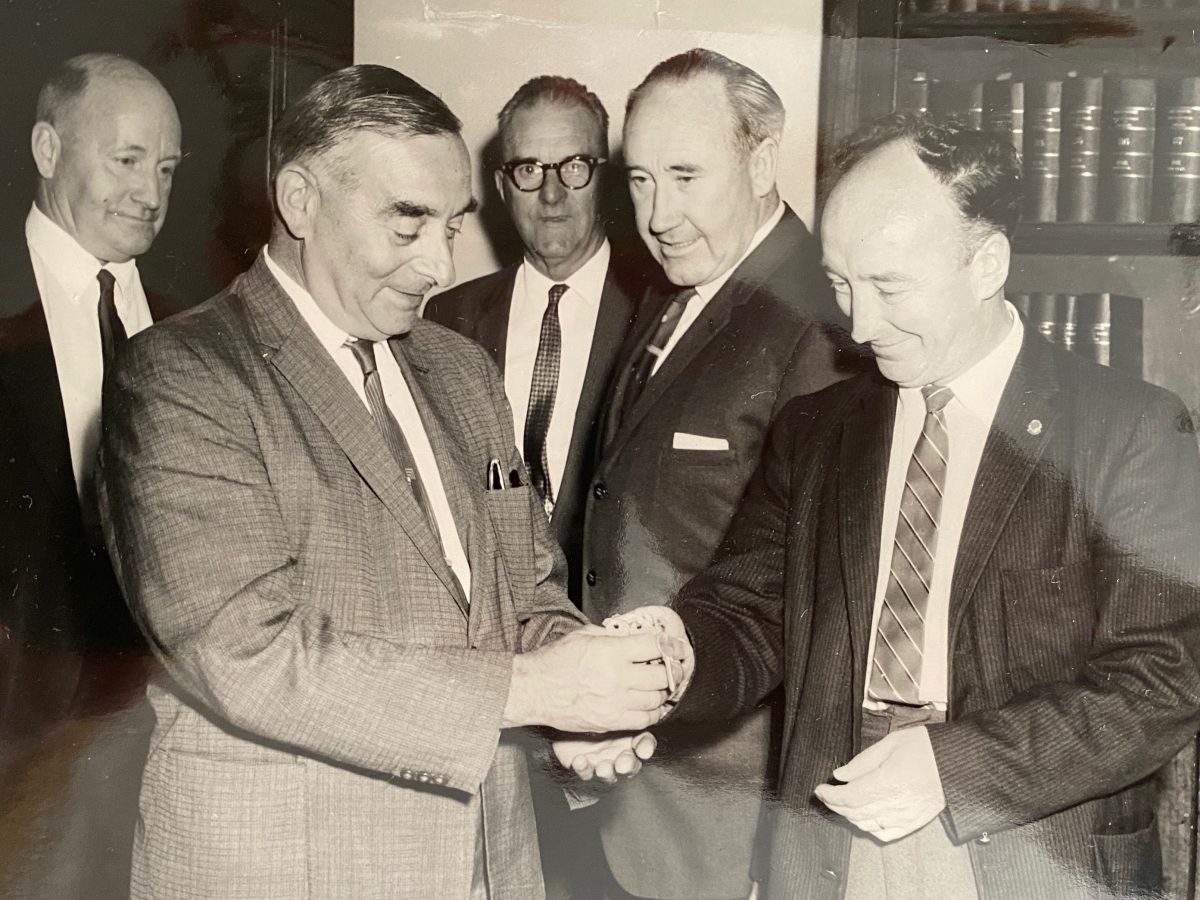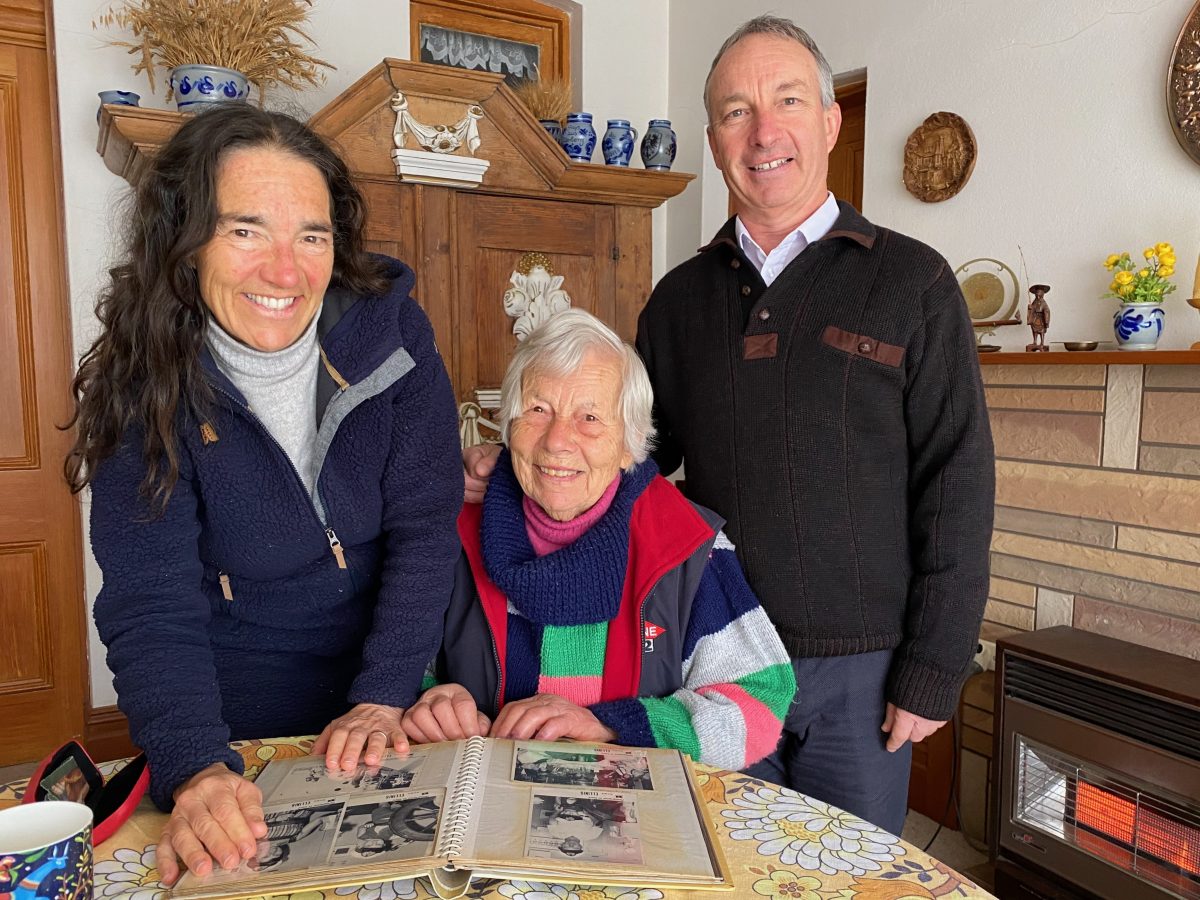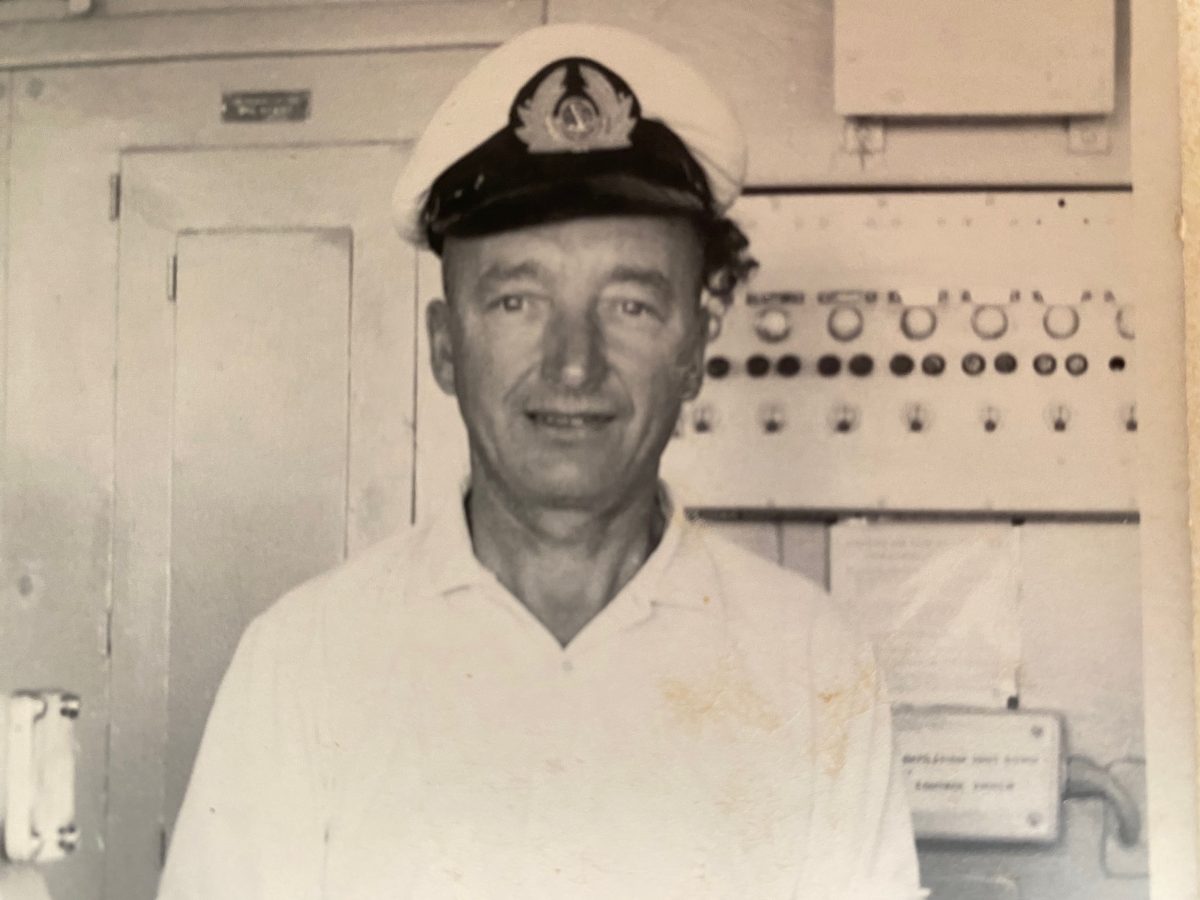
NSW Minister for Housing and Housing Cooperative Societies Abram Landa (left) receives a bunch of keys from Goulburn builder Tom Skeffington in 1963, while the then mayor of Goulburn Ernie McDermott (centre) and two other men witness the exchange. This was a peak period for Tom’s building enterprise. Photo: Skeffington family collection.
Congratulating a Goulburn businessman on building more housing commission homes, the NSW housing minister and the city’s mayor were probably unaware of what drove Tom Skeffington in 1963.
Their emphasis was on keeping men in work as much as it was on creating more housing. Tom employed 40 people and was exactly what the Housing Commission wanted at the time.
But his Irish origins and growing up in poverty meant Tom’s higher priority was hard work so he would never see his own family experience such deprivation.
His daughter Sylvia says: “He did say in one of his melancholic moods that he and his brothers and sisters used to traipse around Ireland and begged the English soldiers to give them some food.”
Born in County Mayo Southern Ireland in 1914, Tom was not allowed to continue school in later years despite showing scholarly promise. His mother told her 14-year-old son he was to work to support the family.
His parents had separated during World War I and Tom became a cabinet maker in England. He married Doris Rogers at age 19 and joined the merchant navy when World War II broke out.
At war’s end he moved to Sydney’s west and later moved again to Canberra, chasing more opportunities and broadening his carpentry skills. So much so unions intervened to curb his work ethic, according to his son, Thomas.
He became a foreman and built the water filtration plant on Clinton Street, Goulburn, where he remained with Doris and their two daughters, Joan and Majorie.
“He set up his own business and started to do work, mainly for the Housing Commission,” Thomas said.
The family had lived frugally in a shed for a time, but then Tom’s business gathered momentum. As the family’s outlook brightened, Doris died suddenly in the late 1950s of a brain haemorrhage.
Now finding himself alone each night and going to the pub looking for more building work, he would often see his foreman, a Polish man Frank Wisniewski there with his German-born wife Margaret.
“Tom said to Margaret one night, ‘Are there any other nice German girls like you?’” Thomas said. Margaret suggested he write a letter which she subsequently translated into German and sent to a pen pal association.

Sylvia, Lieselotte, (better known as Lilo) and Thomas Skeffington looking over family photos when Tom Skeffington was a major builder of homes in Goulburn. Photo: John Thistleton.
“My mother in the meantime (Lieselotte Schumann) had grown up in East Germany which was occupied at the time by the Soviets,” Thomas said. “She had fled to West Germany where an absence of men (had caused) her to write to a pen pal association too.
“She then got the letter from my father and she liked his handwriting. So from all of the letters she had before her, she selected this one,” he said. After more correspondence, Tom sent for Lieselotte to come to Australia, where they later married.”
Growing up, Thomas was left with an abiding memory of payday for his father’s staff.
“We were picked up by our father, we would go to (accountants) Manfred & McCallum and collect all this money. We used to think we were so wealthy. And then we would come here (home), we’d have lunch and go and then we came back here after school at 3 pm and all the money had gone,” he said. “All that money went into envelopes and I would go around with my father and we would pay all the men their money.”
In 1966 Tom and his team won a Housing Commission tender worth $63,374 for 10 new homes in Albert Street, Goulburn. He built the Department of Works in Bourke Street and a garage for Eric Brown Motors at Bradfordville. He also operated a workshop in Craig Street where he made timber windows for the homes, and all the fine cabinetry in the family’s home, Highgate.
Sylvia and Thomas can recall lean periods.
“It was very hard (to earn) money,” Sylvia said. “I remember times there was not a lot of money to spare. It was very stressful; we never saw our father really. When we got up he had already gone to work at six in the morning.”

On holidays and behind the wheel of a ship, Tom Skeffington was a generous provider for his family. Photo: Skeffington family collection.
His Saturdays were occupied in the office doing bookwork. Other spare time was spent looking over plans for homes. Providing for his family was the priority.
“He was extremely generous with us and we ate a lot growing up,” Sylvia said. “He loved cooking, especially meat. He even started baking bread and loved cooking barbecues. He made really big barbecues every Saturday and my mother provided the vitamins with the vegetables and salads.”
No one was ever hungry in Tom Skeffington’s home.








